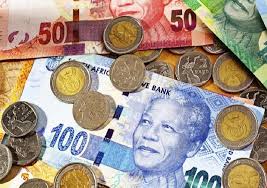South Africa’s deputy finance minister was quoted in a leading newspaper on Sunday as urging the central bank to temporarily create money to fund the government response to the COVID-19 pandemic and its economic fallout.
In an interview with the Sunday Times, David Masondo called on the government to avert a 1930s-style depression by getting the central bank to buy government bonds directly to fund the country’s deficit during the coronavirus crisis.
“Such bonds must be once-off special bonds with earned proceeds, and should be treated as a temporary measure with a clear exit plan,” he was quoted by the paper as saying.
“Such money from the SARB (South African Reserve Bank) must be used for immediate COVID-19 health-related interventions and ... economic recovery measures,” he added.
A central bank spokeswoman did not immediately respond to a request for comment.
President Cyril Ramaphosa last month announced a record 500 billion rand ($26.3 billion) rescue package equalling 10% of the GDP of Africa’s most industrialized nation, to cushion the economic blow of the coronavirus pandemic. Since then debate has stirred as to how it is to be funded.
Ramaphosa has approached the IMF and World Bank, a sensitive issue in a government that has generally been hostile to the so-called Washington consensus.
Masondo is a former youth leader of South Africa’s Communist Party, but since Ramaphosa appointed him a year ago he has been a strong advocate of tough economic reforms, including clamping down on excessive government spending.
In an unprecedented move in March, the bank central did begin a programme of buying back government bonds from the secondary market to inject liquidity and prevent lending from seizing up.
But the idea of the central bank purchasing government debt directly to fund the deficit would most likely cross a red line for Finance Minister Tito Mboweni, a fiscal conservative who believes in central bank independence.
The government would also be keen to avoid a situation like neighbour Zimbabwe, whose runaway money-printing to pay its bills triggered massive hyperinflation a decade ago.
Latest Stories
-
Residents of Dome-Kwabenya on edge ahead of December elections
3 mins -
Moffy drops new single ‘Wo’, blending culture and modernity
16 mins -
Don’t bring soldiers to polling stations – Martin Kpebu
28 mins -
Ogyeahohuo Yaw Gyebi II retained as President of National House of Chiefs
43 mins -
Embrace ICT to fit in digital world – Ho NYA boss to youth
1 hour -
We don’t want armed soldiers at polling stations – Tanko-Computer
2 hours -
Drama as police corner armed robbers inside locked forex bureau at Lapaz
2 hours -
Nigerian-born conquers childhood hearing loss to become KNUST’s overall best graduating student
2 hours -
ECOWAS Court orders compensation for violations against New Force’s Shalimar Abbiusi
2 hours -
Dreams FC denies allegations of attempting to sign Najeeb Yakubu
3 hours -
Election 2024: ‘Right to free and fair elections non-negotiable’ – Akufo-Addo
3 hours -
Kurt Okraku took out my passport from the U23 squad that travelled to Japan – Najeeb Yakubu alleges
4 hours -
Where hope fails: Ghana’s decaying home for the destitute
4 hours -
NDC Mining Committee for 2024 campaign refutes allegations of recruiting thugs for elections
4 hours -
Traction Control: A lifesaver with an off switch? Here’s why it exists
4 hours

